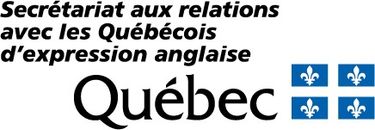Resources
General
For an introduction, see "English-Speaking Quebecers" (encyclopedia article by Patrick Donovan).
Explore QUESCREN research tools, published documents, annual reports, and our latest newsletter.
By theme
Black Community Vitality
- Black Community Resource Centre (BCRC) Documents: The BCRC publishes material on the Black English-speaking community in Quebec, including an infographic and survey results on community vitality.
Community Group Ecosystem
- Community Knowledge Open Library (CKOL): This online library, created by QUESCREN, stores documents from English-speaking community groups in Quebec. Explore annual reports, research reports, briefs, press releases, PowerPoints, newsletters, infographics, and pamphlets through its full-text search engine.
- TALQ and the Regional Development Network (RDN): These umbrella organizations advocate for the interests of Quebec English speakers.
Economic Development
- CEDEC documents: CEDEC produces guides aimed at English-speaking communities for business and tourism initiative development.
Education
- Statistics on School Attendance in Quebec: The provincial government provides statistics on school attendance (French only).
- Access to English-Language Schools: This article from legal literacy non-profit Éducaloi explains how English-language education is regulated in Quebec, including how to obtain a certificate of eligibility.
- ILET Hub: This research hub pools information on Quebec’s English-language education ecosystem through blog articles, podcasts, and videos. The project is an initiative of QUESCREN’s Inter-level Educational Table (ILET).
- Leading English Education and Resource Network (LEARN): LEARN offers resources, tutoring, and professional support for students, educators, and others.
Employment
- Provincial Employment Roundtable (PERT): PERT produces employment profiles, assessment reports on French second-language training and other knowledge products to enhance the community’s understanding of its employment needs.
Health and Social Services
- Access to Health and Social Services in English: Éducaloi’s article provides an overview of access to health and social services in Quebec.
- Community Health and Social Services Network (CHSSN): This network groups more than 70 community organizations to improve access to health and social services for English-speaking Quebecers through its Networking and Partnership Initiative (NPI). The NPI map offers a snapshot of major regional organizations. CHSSN funnels funding and resources to carry out projects that promote health and well-being, and also produces research.
History and Culture
- Dictionary of Canadian Biography: With nearly 9,000 biographies, its Advanced Search allows sorting by region of birth and region of activities (North America-CanadaQuebec).
- Building Bridges: Perceptions and realities about the Englishspeaking communities of Quebec and their relationship with French in Quebec and bilingualism in Canada: This 2024 study by the Office of the Commissioner of Official Languages compares the cultures of the two official language communities in Quebec and provides insightful data on cultural comparisons between the province’s two official language communities.
- Quebec Anglophone Heritage Network (QAHN): This non-profit stores material related to the history of English speakers in Quebec. It also publishes Quebec Heritage News.
- Eastern Townships Resource Centre (ETRC): This website includes full texts of its Journal of Eastern Townships Studies (JETS) / Revue d’études des Cantons-de-l’Est (RECE) and the Eastern Townships Archives Portal which gives access to archival fonds and collections of 10 anglophone heritage organizations in the Townships.
- English-language Arts Network (ELAN): ELAN connects, supports and creates opportunities for Englishspeaking artists and cultural workers in Quebec.
Socio-demographic and demolinguistic resources
- Language Use and Anglophone Francophone Relations: An infographic by the Office of the Commissioner of Official Languages (OCOL) provides a snapshot of English-speaking Quebecers’ language use and their relations with Francophones. OCOL provides many other useful infographics on the official languages as well.
- Socio-Demographic Profiles and Baseline Data Reports: These reports by sociologist Dr. Joanne Pocock, in partnership with the Community Health and Social Services Network (CHSSN), offer sociodemographic portraits of communities based on the latest census data.
- Population Map: A regional map offers an overview of the population distribution of English-speaking Quebec, as well as the location of CHSSN’s “Networking and Partnership Initiative” project network.
- Official-Language Minority Communities Dashboard: Developed by Canadian Heritage, this tool presents indicators based on census data.
- Data Portal on English Speaking Quebec (DESQ): Created by QUESCREN, DESQ stores custom datasets related to Englishspeaking Quebec, mainly from Canadian census data. Partners supply the datasets for this resource.
- Statistics Canada Data and Publications
- Situation of English-speaking populations in Quebec and Frenchspeaking populations in Canada outside Quebec: Results of the 2022 Survey on the Official Language Minority Population (2024)
- Key facts on the English language in Quebec in 2021 (2023)
- English–French bilingualism among Canadian children and youth (2019)
- Earnings of immigrants and children of immigrants in official language minority populations (2019)
- Language Projections for Canada, 2011 to 2036 (2017)
- Health care professionals and official-language minorities in Canada, 2001 and 2011 (2017)




